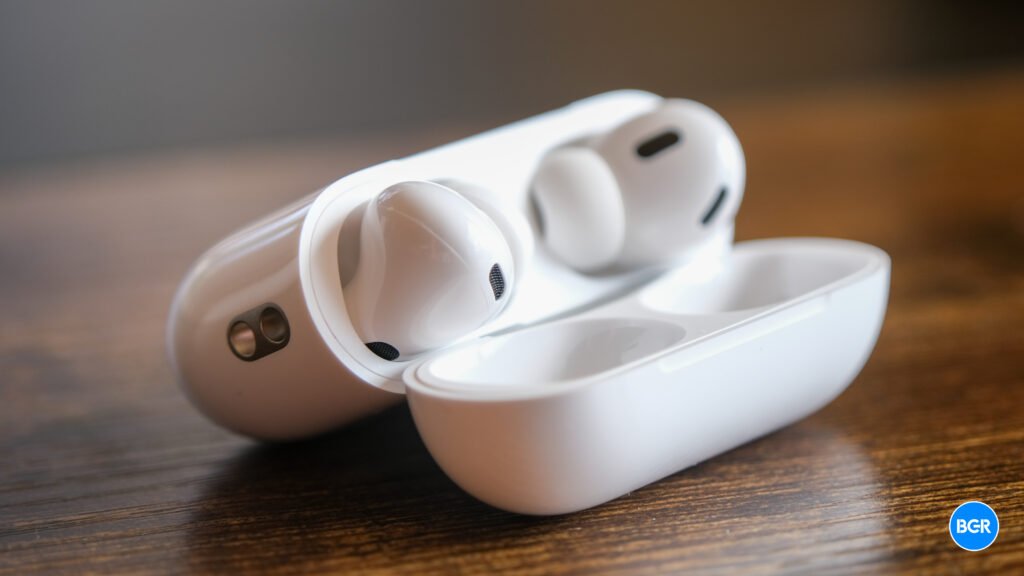The iPhone 16 series was obviously the star of Apple’s “Glowtime” press event, but I’m more excited about two health-related features the company revealed.
I’ve already addressed one of them: the Apple Watch Series 10’s fast-charging support. It will ensure I spend less time without a health-tracking device.
The second might be even more important and will dictate which wireless earphones I buy. The AirPods Pro 2 are about to become cheap over-the-counter hearing aids. On top of that, Apple’s most expensive earbuds will also let you run hearing tests at home to help you monitor hearing conditions. After that, you’ll be able to set them up as hearing aids.
Unlike my parents, who didn’t have similar tech at their disposal as they started dealing with the usual health issues that happen with middle age, I want to employ technology to monitor and manage my health. Health-related tech gadgets could help me detect some medical conditions early and improve therapies.
Tech. Entertainment. Science. Your inbox.
Sign up for the most interesting tech & entertainment news out there.
By signing up, I agree to the Terms of Use and have reviewed the Privacy Notice.
It’s why I use ChatGPT and the Apple Watch to train and run marathons. It’s why I want to upgrade to an Apple Watch Series 10 as soon as it’s available.
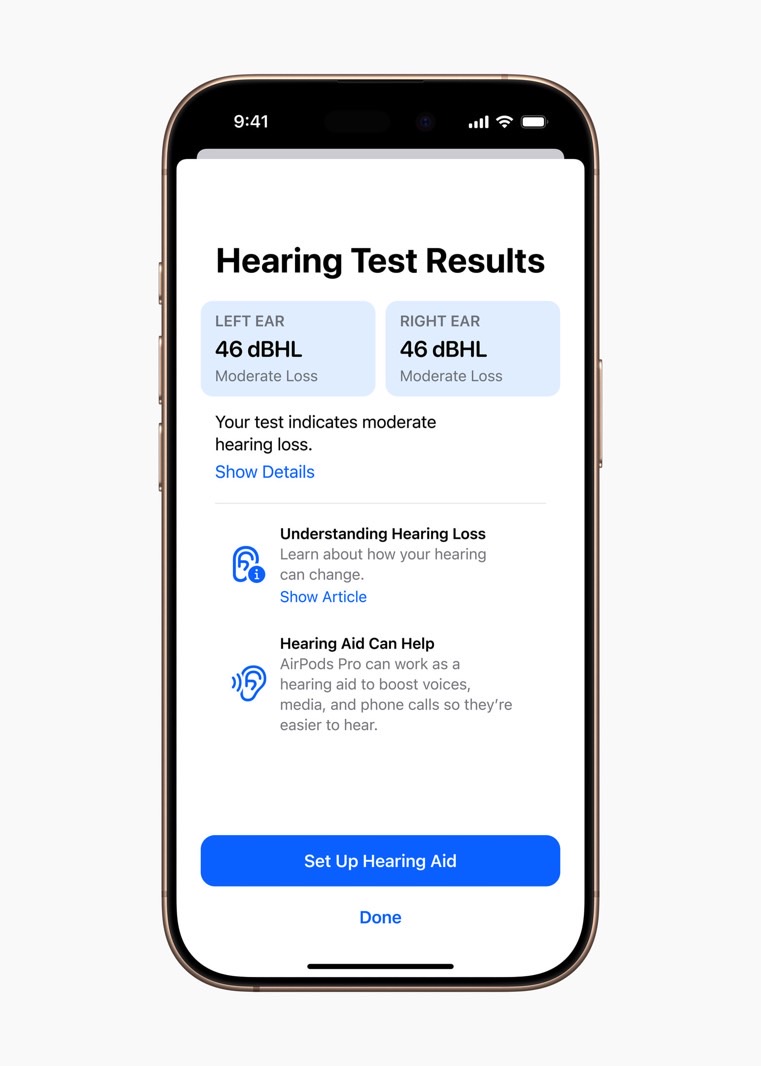 The iPhone will let you take Hearing Tests with the help of the AirPods Pro 2. Image source: Apple Inc.
The iPhone will let you take Hearing Tests with the help of the AirPods Pro 2. Image source: Apple Inc.
I also happen to have some emerging hearing issues, and I’ll want to use AirPods Pro to monitor them. I’m probably one of the 1.5 billion people around the world who have some hearing loss.
Apple mentioned that figure during the event on Monday. Like many other adults, I’m not doing anything about it, but I’ll soon go to the doctor’s office to have my hearing tested.
Before that, I might employ the iPhone and AirPods Pro 2 to test my hearing at home. The “clinical-grade hearing test will be available in the iPhone. According to Apple, it’s based on the “standard clinical approach called pure-tone audiometry.” I’ll need a pair of AirPods Pro 2 and five minutes of my time to perform a test.
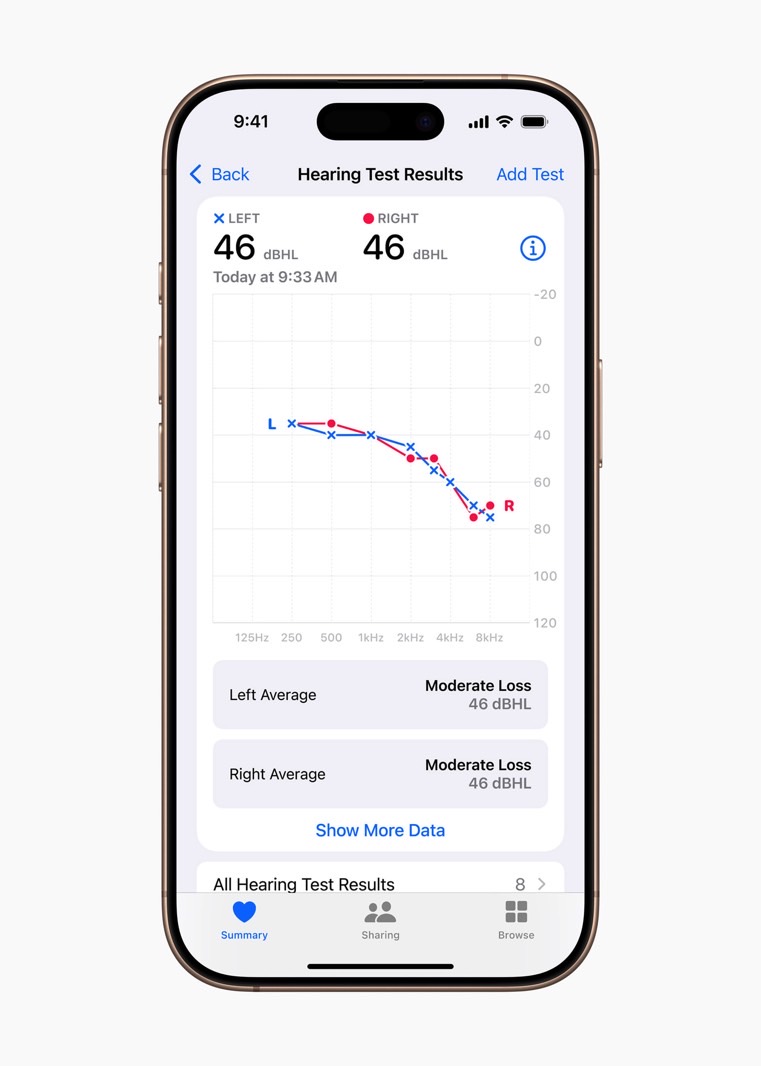 Hearing Test results will appear in the Health app. Image source: Apple Inc.
Hearing Test results will appear in the Health app. Image source: Apple Inc.
The Hearing Test results will be stored in the Health app. I’ll then be able to compare them to actual medical tests I’ll undergo to check my hearing. After that, I’ll routinely perform these tests as I get older. The Hearing Test results will give me a number for quantifying the hearing loss in each ear, a classification, and an audiogram.
The Hearing Test will then let me turn the AirPods Pro into hearing aids. Apple says the Hearing Aid feature will transform the earbuds into a “clinical-grade hearing aid.” Apple says it validated the feature in a “controlled, randomized study that evaluated the perceived benefit of the feature and its custom settings compared to an audiologist-assisted setup.”
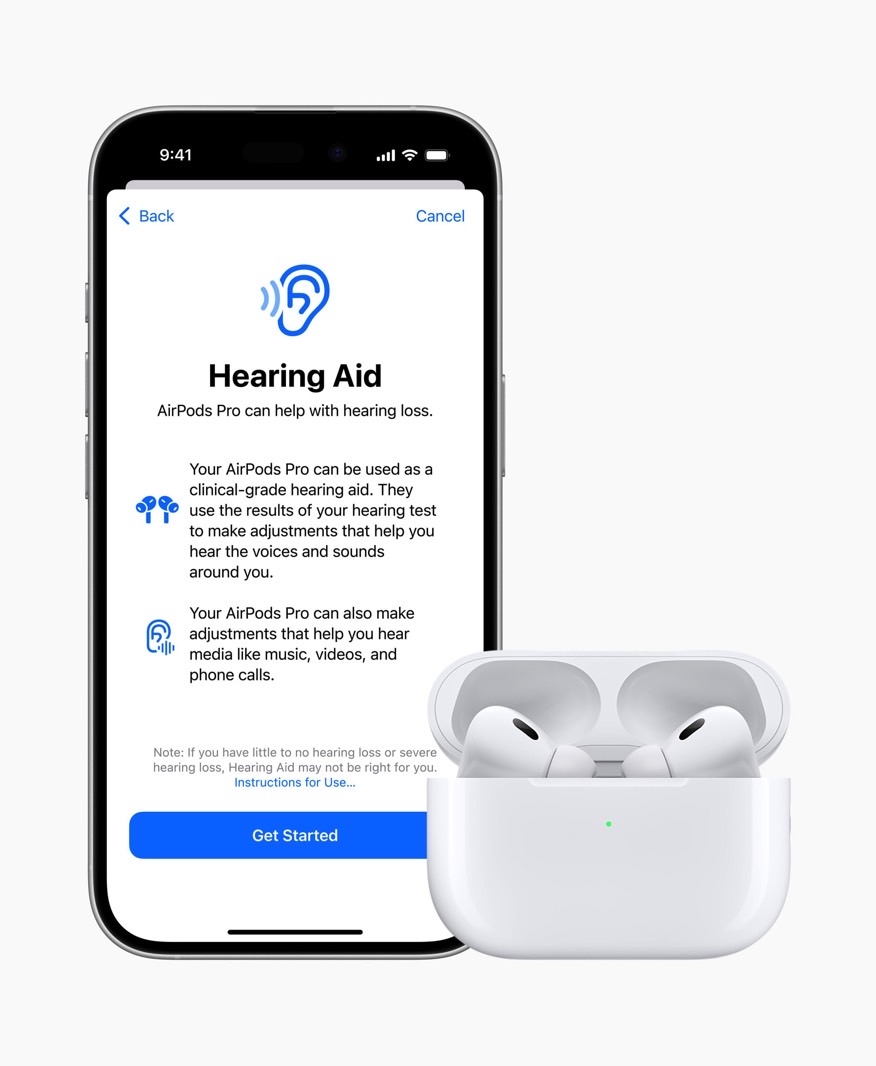 You’ll be able to configure the AirPods Pro 2 as hearing aids on the iPhone. Image source: Apple Inc.
You’ll be able to configure the AirPods Pro 2 as hearing aids on the iPhone. Image source: Apple Inc.
The AirPods will then boost audio in real time based on the results of your hearing tests. The AirPods Pro will boost sound for a variety of scenarios, whether you’re talking to someone else or enjoying content on the iPhone. The same hearing profile will automatically be applied to calls, music, movies, and games.
Finally, the AirPods Pro 2 will also get a new Hearing Protection feature this fall that will reduce loud noise from the environment. Hearing Protection will roll out to US and Canadian users first.
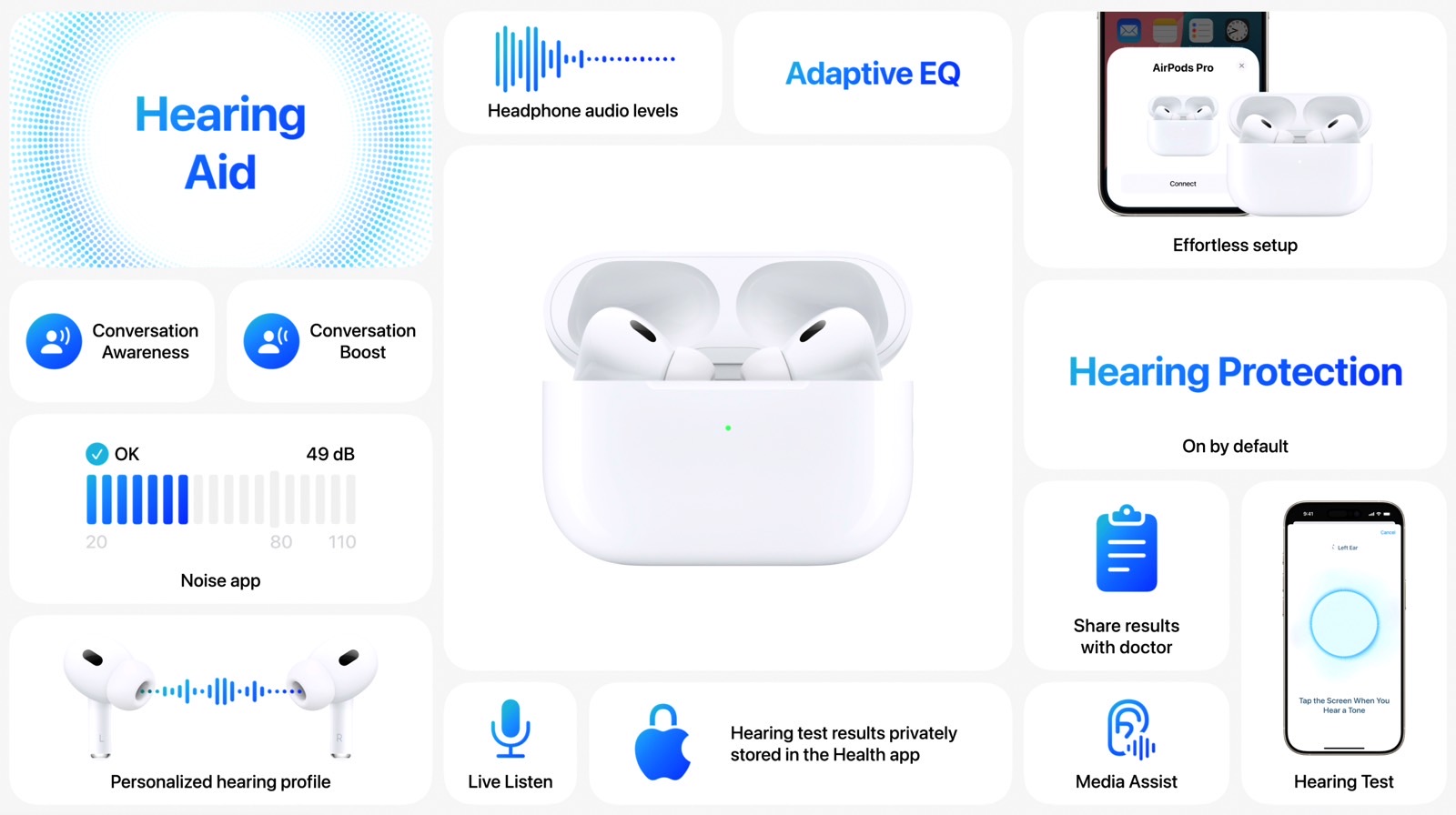 AirPods Pro 2: the hearing health features. Image source: Apple Inc.
AirPods Pro 2: the hearing health features. Image source: Apple Inc.
The Hearing Test and Hearing Aid features will be available after Apple obtains the proper authorizations from health authorities around the world. It’ll be available in over 100 countries and regions, including the US, Europe, Japan, and others.
All of that makes it extremely clear to me that the AirPods Pro will be a must-buy gadget given my needs. I won’t even care as much about the high-end noise cancellation features the Pro can support as I will about the hearing health features.

